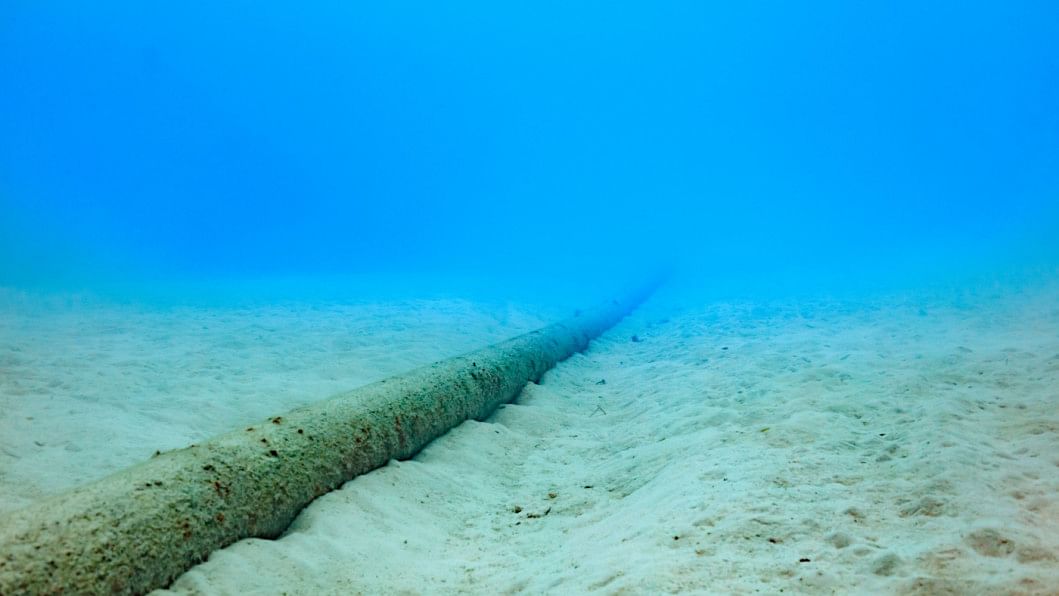Submarine cable breakdown disrupts Bangladesh internet

Internet users in Bangladesh are facing disruption as the country's second submarine cable SEA-ME-WE 5, the largest supplier of international bandwidth to Bangladesh, broke last night.
The disconnection was identified at last midnight. It will take at least 2 to 3 days to resume the connection, Mirza Kamal Ahmed, managing director of the Bangladesh Submarine Cables PLC (BSCPLC), told The Daily Star.
International bandwidth usage in Bangladesh now stands at around 5,200GBPS. More than half of it -- about 2,700 Gbps -- comes through international terrestrial cable (ITC) licence holders that import bandwidth from India across land borders.
The South East Asia-Middle East-Western Europe 5 (SEA-ME-WE 5) submarine cable installed in Kuakata supplies 1,700GBPS.
The undersea cable of the SEA-ME-WE 5 got broken in a spot between Singapore and Malaysia, he said.
For that, all circuits of all members of the consortium got down, he added.
"So, a ship will be mobilised to repair and restore the service. Total operation will take minimum 2 to three days," he added.
The SEA-ME-WE 5 is a 20,000km submarine cable system connecting 17 countries through Points-of-Presence from Singapore to the Middle East to France and Italy in Western Europe.
The cable that laid in the eastern side that connected Singapore got broken, while the connectivity in the western side that connected France remained operational, he added.
For that, of 1700Gbps bandwidth comes through the system, only 100 GBPS bandwidth will be supplied to Bangladesh.
The BSCPLC is now exploring ways to restore the circuits of SEA-ME-WE 5 with SEA-ME-WE 4, the country's first submarine cable installed in Cox's Bazar.
Nearly 800 Gbps bandwidth is provided by the first undersea cable with which Bangladesh was connected in 2006. It currently supplies about 850 Gbps bandwidth and its capacity has recently been upgraded to 3,800 Gbps.
The first undersea cable with which Bangladesh was connected in 2006 currently supplies about 850 Gbps bandwidth and its capacity was recently upgraded to 3,800 Gbps.
The BSCPLC is set to receive 13,200 Gbps from a third undersea cable, SEA-ME-WE 6, by 2025.
Md Emdadul Hoque, president of the Internet Service Providers Association of Bangladesh (ISPAB), said the cable cut of the second submarine cable will severely affect internet service for almost a week.
"Some of our customers have already started complaining about slow interest and high latency," said ISPAB president.
However, officials of mobile operators said their internet services have so far remained unaffected.
"We are monitoring the situation closely. We are working with our partners International internet gateway operators to continue smooth service," said Shahed Alam, chief corporate and regulatory officer at Robi Axiata.
"As it is a holiday today [Saturday], the demand for the internet is low. Our customers may face disruption from tomorrow [Sunday]".
Submarine cables are crucial for internet bandwidth because they enable high-capacity data transfer between continents, supporting global communication, online services, and international connectivity essential for modern digital operations.

 For all latest news, follow The Daily Star's Google News channel.
For all latest news, follow The Daily Star's Google News channel. 







Comments